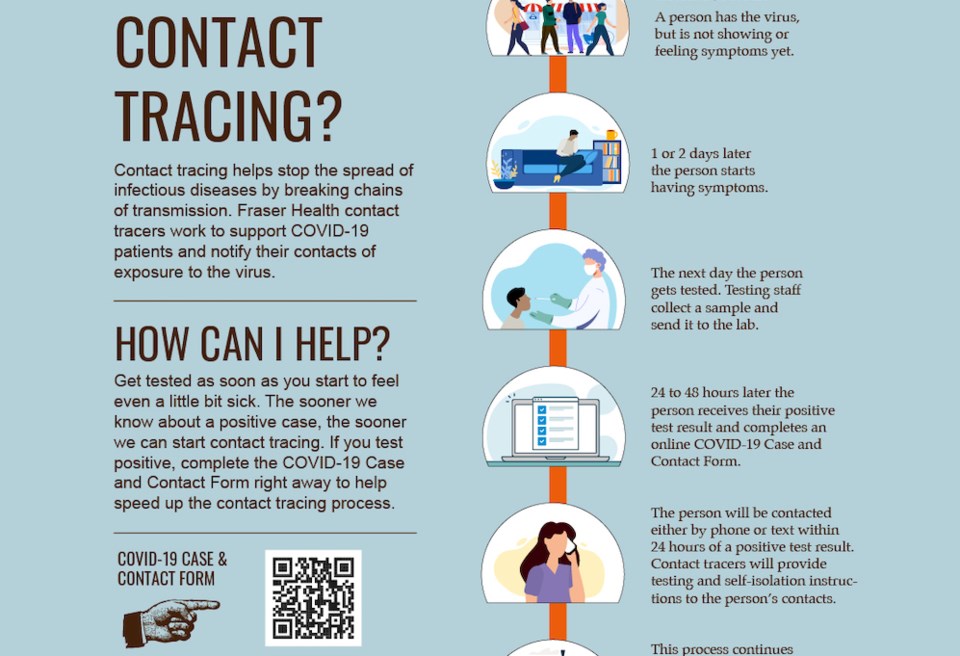Fraser Health has released an infographic and a video that convey how contract tracers work to slow the spread of coronavirus (COVID-19)--and why it is vital for them to have your information.
Back in the fall, B.C. health officials issued a number of infographics that show how quickly the coronavirus (COVID-19) spreads. Since then, they have released a few more, which illustrate other ways the virus can quickly spread.
Fraser Health has issued some infographics using real data that demonstrate how seemingly harmless road trips and gatherings can have catastrophic consequences.
Slow the spread of COVID-19 by breaking chains of transmission
Now, the health authority has issued an infographic that shows how contract tracers work to slow the spread of COVID-19 by breaking chains of transmission.
In the infographic, health officials describe "a typical contact tracing journey" that begins when a person has the virus but isn't showing symptoms. One or two days later, they start to show symptoms, and then they go for a test.
A day or two later, the infected individual receives a positive test result and completes an online COVID-19 Cast and Contact form. From there, the person's contacts will be provided information about testing and self-isolation instructions.
From there, the process continues until all cases and contacts are identified "This allows us to track, test, and isolate people and break the chains of transmission."
Fraser Health contact tracers are working to slow the spread of COVID-19 by breaking chains of transmissions.#COVID19 #COVID19BC pic.twitter.com/gKTDOmI1rd
— Fraser Health (@Fraserhealth) February 10, 2021
Fraser Health also shares a video on Instagram of their contact tracing protocol and notes that they "are also there to support COVID-19 patients."
Avoid non-essential travel
While there currently isn't a law against travel outside of Canada during the pandemic, the federal government says you should avoid non-essential travel outside Canada until further notice.
Further, provincial governments across the country have enacted their own travel advisories. Health officials, including Provincial Health Officer Dr. Bonnie Henry and Health Minister Adrian Dix in B.C., continue to encourage locals to stay in their communities and stress that doing so will help to slow the spread of COVID-19.



